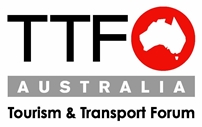TTF Media Release
14/5/2024
A commitment to the development of a Sustainable Aviation Fuel (SAF) industry unveiled in the Federal Budget will bring Australia a step closer to delivering cleaner, greener air travel, the Tourism and Transport Forum (TTF) said tonight.
TTF CEO Margy Osmond said key initiatives announced to support SAF will help safeguard the future of Australia’s tourism, transport and aviation sectors, as consumer demand for more sustainable travel increases.
“Tonight’s announcement shows the Federal Government has listened to the tourism sector’s pleas to support the development of a local SAF industry in Australia, to help achieve our target of net zero emissions by 2050,” Ms Osmond said.
She welcomed the package of measures, including:
- $1.7 billion over 10 years in the Future Made in Australia Innovation Fund, to support the Australian Renewable Energy Agency to commercialise net zero innovations including low-carbon liquid fuels.
- $18.5 million over four years to develop a certification scheme for SAF and other low-carbon liquid fuels, by expanding the Guarantee of Origin scheme.
- $1.5 million over two years to analyse the cost and benefits of introducing mandates or other demand-side measures for low carbon liquid fuels, like SAF.
Ms Osmond said these key funding initiatives and a commitment from the Federal Government to consult closely with the industry would be critical to helping Australia urgently develop a local SAF or ‘green fuel’ sector.
“Consumers are increasingly demanding more sustainable options when they travel and want a greener future for aviation. This extra support will help Australia remain competitive in one of the toughest tourism markets our industry has ever faced,” she said.
“As a long-haul destination, Australia cannot afford to be left behind other developed countries which are prioritising support for SAF, like the USA, Europe, UK, Singapore, Japan and Canada.”
She noted developing a local SAF industry would create thousands of new jobs in regional Australia and support our farmers whilst increasing economic growth and fuel security.
“Australia has the potential to become a world-leading supplier of Sustainable Aviation Fuel, with enough feedstock to replace 90% of local jet fuel with SAF by 2050,” she said.
“We applaud the Federal Government for making real progress and giving focus to this issue, initially through the establishment of the Jet Zero Council and by collaborating with industry.”
“Tonight’s announcement sends a strong signal to the industry and investors that the Federal Government is committed to helping develop a local SAF industry here in Australia.”
TTF also commended the Federal Government on a renewed commitment to delivering the priority road and rail infrastructure projects Australia needs with an investment of $16.5 billion over 10 years, including for 65 new priority infrastructure projects.
“It’s very pleasing to see funding committed to the completion of game-changing infrastructure projects such as the Sunshine Coast direct rail link ($1.15 billion), new Western Sydney road and rail projects ($1.9 billion) and the expansion of Western Australia’s critical Metronet ($1.4 billion),” Ms Osmond said.
“These projects will not only increase connectivity in key parts of the nation but also drive significant outcomes for both public transport use and the visitor economy.”
Other budget initiatives welcomed by TTF include:
- Sustained funding of around $190 million per annum for Tourism Australia over the forward estimates.
- $8.1 million over four years from 2024–25 (and $2.5 million per year ongoing) to administer the Approved Destination Status scheme to support Chinese tourists travelling to Australia in guided groups.
- An extension to the Regional Airports Program with an additional $40 million in competitive grant funding over three years from 2024-25.
- $8.6 million for the Revive Live program to provide essential support to live music venues and festivals showcasing Australian bands and artists, to ensure the long-term sustainability of the live music sector and helping to reinvigorate destinations to make them more attractive to visitors.
ENDS
